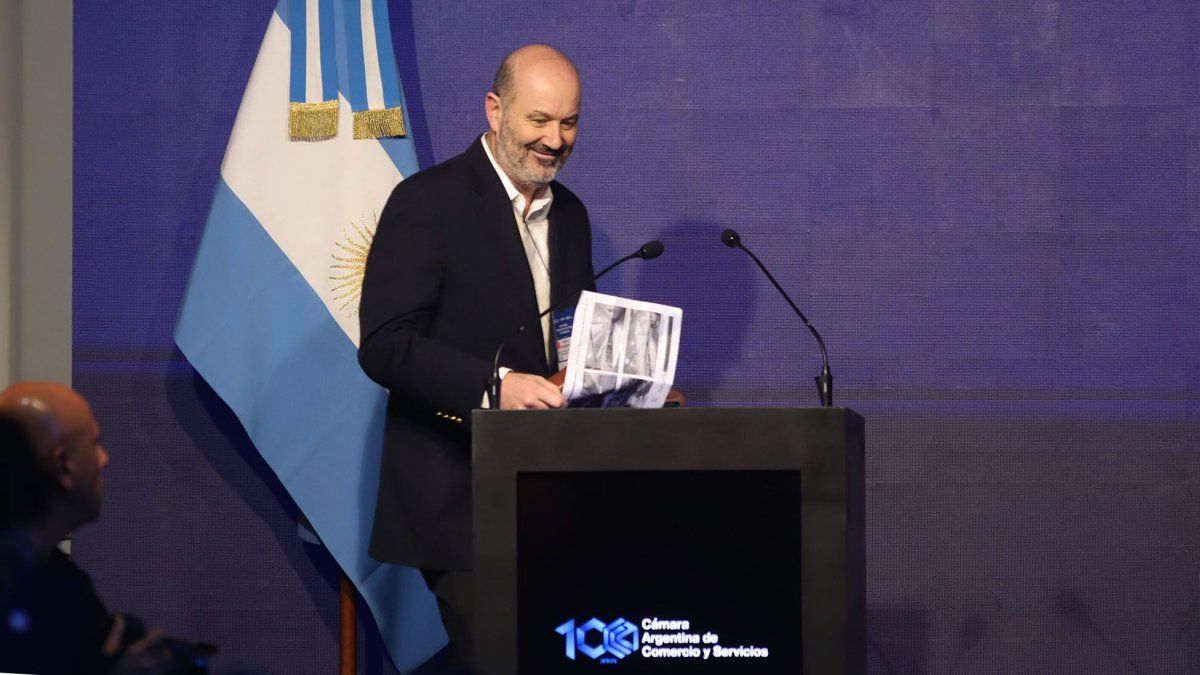From the entry into force of the Decree 149/2025published Wednesday at the Official Gazettecompanies will no longer be obliged to make economic contributions to business cameras, as they had been doing under collective work agreements. This measure puts end to the obligation of employers, not associated with those cameras, to make contributions in favor of them, which was done within the framework of said agreements.
According to government arguments, The clauses that impose contributions to non -associated entities lack normative base, so the payment of these mandatory contributions cannot be required. However, the agreements of agreements already signed will continue to be valid, but this tool will no longer be allowed in future negotiations.
Federico-Sturzenegger-Stock-172880 (1) .jpg
The deregulation minister, Federico Sturzenegger was at the head of the measure
Changes: Companies should not make contributions to business cameras
Official sources indicated that the Government will not homologate collective agreements that impose this type of contributions, since an “incorrect interpretation” of the law that regulates these agreements was being made. Besides, The change was requested by numerous business union entities from all over the country, who did not receive these contributions.
It is important to remember that one of the versions of the Base Law Project proposed the elimination of the solidarity contributions of workers not affiliated with unions, although finally this proposal was not approved.
The Minister of Deregulation and Transformation of the State, Federico Sturzenegger, began to address the issue of the mandatory contributions of companies in September last year. From then on, conversations were initiated with the CAME and the Argentine Chamber of Commerce (CAC) to gradually eliminate these contributions.
Wholesalers pointed out these contributions as an “unnecessary burden”
The Small and medium enterprises have been one of the main sectors in favor of this elimination, since they consider these contributions as an unnecessary burden. The Argentine Chamber of Distributors and Self -Services (CADAM), one of the first union entities to demand the elimination of these mandatory contributions, has questioned the lack of transparency about the fate of the funds collected through these contributions.
In September of last year, the Cadam issued a statement in which it expressed: “We want greater production and employment, and to achieve this it is necessary to reduce these contributions, of which there is no public accountability about the destination of the more than $ 60,000 million that are collected annually.”
In addition, the entity made an order using a phrase commonly associated with Milei and Sturzenegger: “We need to apply the chainsaw to eliminate unjustified mandatory contributions, such as that of INACAP, which does not offer a real benefit. No employee is trained every month, or has never done so, but the employer is still forced to contribute since 2008 For each registered worker, which in the case of the commercial agreement are 1.2 million employees. “
Since 2008, merchants must pay a mandatory monthly contribution for “training” for each employee, even if they never train. From Decree 149/2025 published today in the Official Gazette, It will volunteer. The measure represents a relief of more than $ 70 billion a year for the commercial sector. “This contribution only increases labor costs because it does not represent any benefits for the worker or for the employee, if he decides not to train,” says entrepreneurs.
The “mandatory” contribution, by the employer, to the Argentine Institute of Professional and Technological Training for Commerce (INACAP), reaches 1.2 million workers (the largest pearl in the country).
“These types of contributions only increase labor costs because it does not represent any benefits for the worker or for the employee, if he decides not to train,” they said from Cadam and added: “In any case, if a company wants to contribute to the business guild to do it voluntarily, but we must end this type of mandatory boxes that increase the Argentine cost.”
Cadam thanked President Javier Milei, the Chief of Cabinet Minister Guillermo Francos and the Minister to the deregulation and transformation of the State, Federico Sturzenegger for returning this optional contribution and advancing in policies that encourage investments and generate more jobs. They also thanked national deputy Marcela Pagano for exposing the claim in the Nation Congress.
If one takes into account that the wholesale sector mobilizes about 10,000 jobsthis non -essential contribution will represent a monthly savings of about $ 47,000,000. “Remaking this type of contributions, it will allow to encourage the hiring of more jobs, ”they said.
Source: Ambito




